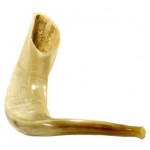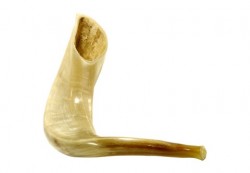Meaning of Life
 Shana Tova – Happy New Year! It’s a new year for the Jewish calendar, and in this time of new beginnings it feels appropriate to be launching my blog and website anew. In that spirit the topic of this blog is a little lesson from the High Holy Days. Spoiler alert: The meaning of life is RELATIONSHIP.
Shana Tova – Happy New Year! It’s a new year for the Jewish calendar, and in this time of new beginnings it feels appropriate to be launching my blog and website anew. In that spirit the topic of this blog is a little lesson from the High Holy Days. Spoiler alert: The meaning of life is RELATIONSHIP.
The High Holy Days, commonly conceived, begin with Rosh Hashanah and carry through to culminate with Yom Kippur. Rosh Hashanah is the New Year – a day of celebration as well as a day of casting off regrets of the past year. This self-reflection continues in the Days of Awe – the ten days between Rosh Hashanah and Yom Kippur, which is a Day of Atonement. A question is: Why celebrate and then atone? Wouldn’t it make more sense to clear up the old, first, before launching into the new?
Rosh Hashanah is a day of judgment. This is often looked at with the heavy understanding of judgment – the “oh no, I did something bad and now I have to pay the piper” kind of judgment. However, as Rabbi Gershon Winkler teaches, the Hebraic origin and intent of the word refers also to a focusing of attention, of seeing what the Other needs. In other words, more than being judged by everything we did or didn’t do in order to punish, it is God taking stock of us in a focused and attentive way in order to take care of us: How are you? How has your last year been? What do you need in the coming year? So, if Rosh Hashanah is to be understood, then, as a loving, taking care of our needs, why do we need Yom Kippur – the atonement?
Yom Kippur is the culmination of a period of self reflection beginning with Rosh Hashanah. Rabbi Miriam Maron describes this time as a response back to God. If God gives special attention on Rosh Hashanah to us and our needs – attention given individually and completely focused on each of us – it is for us, then, to respond back. It is for us to acknowledge that attention. How, though, does one respond back to God?
The period between Rosh Hashanah and Yom Kippur is a time of our taking stock of ourselves. In the same way that God looked at each of us on Rosh Hashanah with focused, individual attention, now we get to look inward with that same focus. It is a time where reverse back through the year to see what we’ve done and not done, where we’ve stepped and miss-stepped. Further, we then ask of our family, friends and loved ones forgiveness for where we’ve fallen short. We reach out and repair that which has become broken in our relationships. Is this not a response back to God?
With Rosh Hashanah it is reaffirmed that we are in relationship with God. We aren’t a blur of creation running around – “sheep”, “cows” or “people” – but individual unique beings – “Bernie” or “Elizabeth”. Our response to that is to acknowledge our relationship to others. To take a moment and focus in and see the Other with their needs. Not “a bunch of people I work with”, but “Harry, who I stepped on when I took over the steering committee”; Harry, who I missed seeing the first time around, and get the chance to see now. If to God we are important and valuable enough to be looked at individually each year, are we not to see each other with this same, generous focus?
Further, in this time of self-reflection, of our accounting through reversing on the year, we not only take stock of where we can improve, we also look more closely at our attributes – used or unused. It is a time of seeing the whole of ourselves. By doing so, we see opportunities to step up to the plate in the coming year. If we take this challenge and bring forward our best selves to nurture and grow in the year’s unfolding we are, in effect, unfolding into a fuller expression of our Self. What greater response back to God is there but to become more fully the unique being that God made? Becoming the true Self, unfolding into our greatest expression of who we are, is a gift back to the God that created us that way. It is a true response.
God sees us. We acknowledge this by braving the seeing of the Self – how we are inside (what we do or don’t) and how we are with those we share a planet with. Which brings me back to the meaning of life. These Days of Awe, as I look at it, are a recognition of the interconnectedness of us to Self, Other and God. It is a starting of a new year with this at our head – at the top of our mind. Our existence is not in a vacuum, it is lived out, worked out and unfolded through relationship. Most importantly, our existence is important – our being here on the planet matters. Not only does it affect each and every one we interact with, it is seen – in a caring, mattering way – by God.
So in these days of new beginnings – this new year – is a time for us to begin, again. To remember we are in relationship, and to take care to it. Shana Tova!
